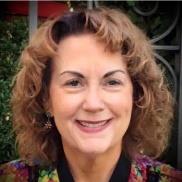
Analisa Chase of Tacoma, WA, is a behavior interventionist who works to improve the quality of life for people on the autism spectrum. In 2016, at age 24, she was diagnosed with schizoaffective disorder – a combination of schizophrenia and bipolar disorder. Doctors prescribed Analisa six different antipsychotic medicines; none effectively treated her disease and many caused severe side effects. Her physicians refused to prescribe clozapine, despite its indication for treatment-resistant schizophrenia. Many cited the FDA’s burdensome regulatory restrictions on physicians and the mandatory blood testing for patients.
After more than a year of suffering from dangerous schizophrenia symptoms and debilitating treatment side effects, Analisa’s mother found a doctor to prescribe clozapine. Analisa now is able to successfully manage her disease and graduated from the University of Washington with a psychology degree and Faculty Honors.
During Analisa’s recovery, a technical issue with the weekly blood tests required with clozapine blocked her medication refill for a week. After just three days without the medication, Analisa became gravely ill – and did not immediately “bounce back” when clozapine was reinstated. This dangerous interruption in treatment resulted in several months of severe illness, which is often the result when clozapine treatment is interrupted.
Analisa’s recovery has been a success, but she lives with the constant fear that her access to the treatment that allows her to live a productive life could be blocked at any time. She continues to face numerous barriers – mandatory blood tests, pharmacy dispensing technicalities and physician regulations – every time she needs a prescription refill.

Deanna Kelly, PharmD, BCPP, is a Professor of Psychiatry at the University of Maryland School of Medicine and Acting Director of the Maryland Psychiatric Research Center, one of the premier schizophrenia research centers worldwide. Dr. Kelly has led and been involved in numerous clinical trials in schizophrenia and severe mental illness and has been active in psychopharmacology research for almost 26 years.
Dr. Kelly has co-authored and authored 19 books and book chapters, published over 235 peer-reviewed articles, presented over 270 scientific posters and has given almost 200invited lectures. She has co-authored four editions of the book “Pharmacologic Treatment of Schizophrenia” and authors the schizophrenia chapter for “Pharmacotherapy, Principles and Practice.”
Dr. Kelly is past president of the American Association of Psychiatric Pharmacists, , a Fellow of the American College of Neuropsychopharmacology (ACNP), Chair of the Maryland Department of Health Institutional Review Board, serves as a clozapine content expert for the American Psychiatric Association SMI Adviser and is a champion of clozapine use, women’s health issues, understanding the role of inflammation and immune dysfunction in schizophrenia and for finding new treatments. She was awarded the Brain and Behavior Research Foundation Maltz Prize for Innovative and Promising Schizophrenia Research and named one of the top 100 women in Maryland in 2023.

Curt Decker is the former Executive Director of the National Disability Rights Network, the membership organization of the Protection and Advocacy Systems and Client Assistance Programs, the nation’s largest providers of legal advocacy services for people with disabilities. He was instrumental in creating the organization and was responsible for adding its mental health component. Mr. Decker was involved in the passage of the Americans with Disabilities Act and many other mental health policy initiatives, including the Federal Hate Crimes Act and the President’s Executive Order on Policing.
Before leading the National Disability Rights Network, Mr. Decker served as the first Executive Director of the newly created Disability Rights Maryland; earlier, he was Executive Director of the HELP project for neglected and abused children. He also worked at the Baltimore Legal Aid Bureau and was a VISTA volunteer in that city. A graduate of Cornell Law School and Hamilton College, he retired in 2022.

Michael Brisbin has been in meaningful recovery from schizophrenia for five years. He is a full-time undergraduate at the College of the Ozarks in Branson, Missouri. After he graduates with his Bachelor of Science in Social Work, he plans to earn a Master of Social Work for clinical practice.
In 2019, Michael joined the National Alliance on Mental Illness (NAMI). He started a NAMI peer support group for people with mental illness in his hometown. In 2020, he started a weekly virtual support group for young adults living with mental illness, with members in attendance from all over the world. Michael also founded NAMI on Campus groups at three different colleges in Missouri. In 2021 he was elected to the NAMI of Greater Kansas City Board of Directors and is now the program director for all NAMI on Campus clubs in the Kansas City metro area. Michael was featured on the PBS Documentary “The Hidden Pandemic” and in the book “You Are Not Alone.” Michael hopes that through sharing his story, more young people will seek appropriate treatment so they can rebuild their lives as he has.
Michael believes that people with mental illness need help, hope, and understanding and wants to work with patients to improve their lives. He wants them to know that recovery is possible with the right medication and that they are not alone.

Linda L. Mimms, MA, is Vice Chair of the Board of Directors for the Schizophrenia & Psychosis Action Alliance. She has served for more than a decade as an advocate for reform in public policy, law, insurance, and treatment protocols for serious neurodevelopmental brain disorders. She began her career as a lobbyist on Capitol Hill for Xerox Corp., moved to the U.S. State Department in Boston, then worked as U.S. Sen. Alan J. Dixon’s Government Affairs/Legislative Analyst Assistant in Chicago and Washington.
As the creator and manager of the Public Relations and Employee Communications Department for Quill Corporation, Linda has authored and edited seven books, manuals and articles on business productivity, with more than 100 articles and business tips published nationally in newspapers, magazines and other publications. Her commentaries and editorials about the lack of a continuum of care and criminalization of those with serious brain disorders have been published nationally and locally.
Linda serves on Lawrence University’s President’s Advisory Council, and in 2020, she established the Fund for Serious Mental Illness Advocacy Internships to give students the opportunity to learn about serious brain diseases, their criminalization and how to build solutions for better access to treatment. She is a member of the California Advocates for Treatment, the Hope Street Coalition, the National Shattering Silence Coalition and the National Alliance on Mental Illness. She earned a master’s degree in public policy from Duke University and a bachelor’s degree in anthropology from Lawrence University.